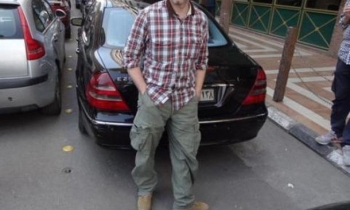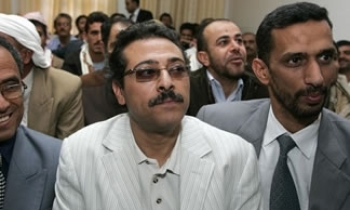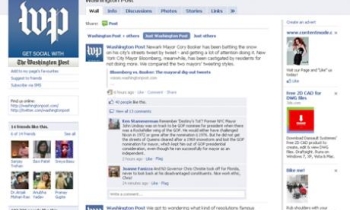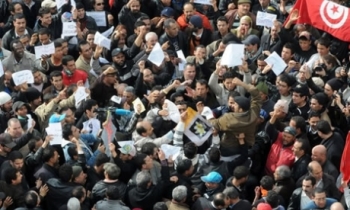For those who enjoy a summer blockbuster, the dust-up between the Bush Administration and The New York Times has been a real clash of the Titans, a bare-knuckle brawl between the press and the White House.
We haven't seen the likes of this since Spiro Agnew labeled the press "nattering nabobs of negativism" back in the Nixon Administration.
It's a controversy that defies easy answers or a safe harbor to decision makers. Should a free press wait patiently for government officials to spoon-feed information only when officials deem it time for the public to know what they've been up to? There are countries that operate that way, but they're not democracies.
On the other hand, at a time when daily vigilance against terrorism is prudent and the United States is at war in Iraq, should journalists exercise increased restraint in deciding what to publish, especially if officials warn public safety could be at risk?
Of course they should, but only if credible evidence shows potential harm overrides the public's need to know what government is doing. This was the tough call the Times faced two weeks ago. The impact of their decision still ripples through newsrooms, including this one.
A brief recap: On June 23, the Times published a story about the existence of a secret program in which counterterrorism officials gained access to a huge international financial database with scant oversight by Congress. The Los Angeles Times and the Wall Street Journal quickly filed their own accounts of the SWIFT banking program. The story hit front pages around the country, including the Star Tribune's.
President Bush branded the New York Times' decision to publish "disgraceful." Bush elaborating later that "There can be no excuse for anyone entrusted with vital intelligence to leak it and no excuse for any newspaper to print it," the Washington Post reported. Some Democrats quickly declared the attacks an election year ploy by Republicans to take attention off problems in Iraq and high gas prices at home. Vice President Cheney concluded "the press, in particular the New York Times, have made the job of defending against further terrorist attacks more difficult."
Right on cue, that set off a predictable barrage of media bashing on talk radio and in conservative blogs, fomenting e-mails in my inbox. A few days later, a Star Tribune editorial strongly defended the Times' decision to go with the story.
Steve Rusch, a systems engineer living in Minnetonka, objected to that editorial. "To defend the Times, who has leaked classified information, over the specific objections of our Government -- from both parties -- tells me that you hate the Bush Administration more than you care for security of me and of all Americans. This is more than shameful. I will not be reading your paper in the future." For the record, the Times did not leak anything; it published what others leaked, a critical distinction.
Other readers had opposite concerns, worried that the harsh rhetoric (one lawmaker said the Times' editor should be jailed for treason) might cow reporters everywhere.
Will the current backlash against the Times and even against regional papers that picked up the story on the wire cause editors to hesitate in printing such stories? With this administration's penchant for secrecy and for pushing the boundaries of presidential power, it probably won't be long before the press again considers publishing something the administration wants to keep private.
Nation/world team leader Dave Peters said his staff didn't hesitate to publish the Times' story and wouldn't hesitate if a similar story came across the wire in the future. "Our goal has to be providing people with information so they can evaluate what their government is doing. That just has to weigh the heaviest," he said.
To editor Anders Gyllenhaal, the track record of The New York Times tipped the balance in this case.
"On a Thursday night, when the story comes over the wire, you act somewhat on faith," said Gyllenhaal. "There are good reasons to do this when it's The New York Times." The editors at that paper, he noted, have a long history of carefully considering government objections and sometimes withholding details when a compelling case was made for national security or public safety.
"We've never looked back and said 'that was a mistake' and regretted the decision to publish," he noted.
Gyllenhaal said he's faced similar requests from officials in Minnesota who argued publication of certain stories might endanger public safety. He said he's withheld details that weren't crucial to the point of the story when a compelling case was made. (Read more on Gyllenhaal's views about the controversy in the From the Editors blog at www.startribune.com/blogs/editors/ .)
There is no template for making these decisions, and no sure way to know if the decision was right until time passes. But history is an excellent teacher in this regard: It's short on examples of calamity befalling nations because a free press alerted citizens to what the government was doing; it's littered with examples of abuse of power aided by government secrecy.









